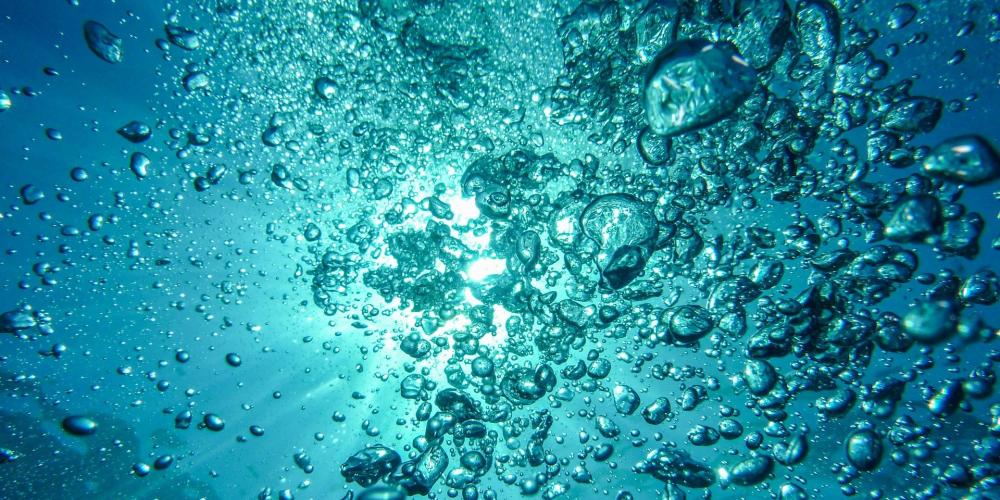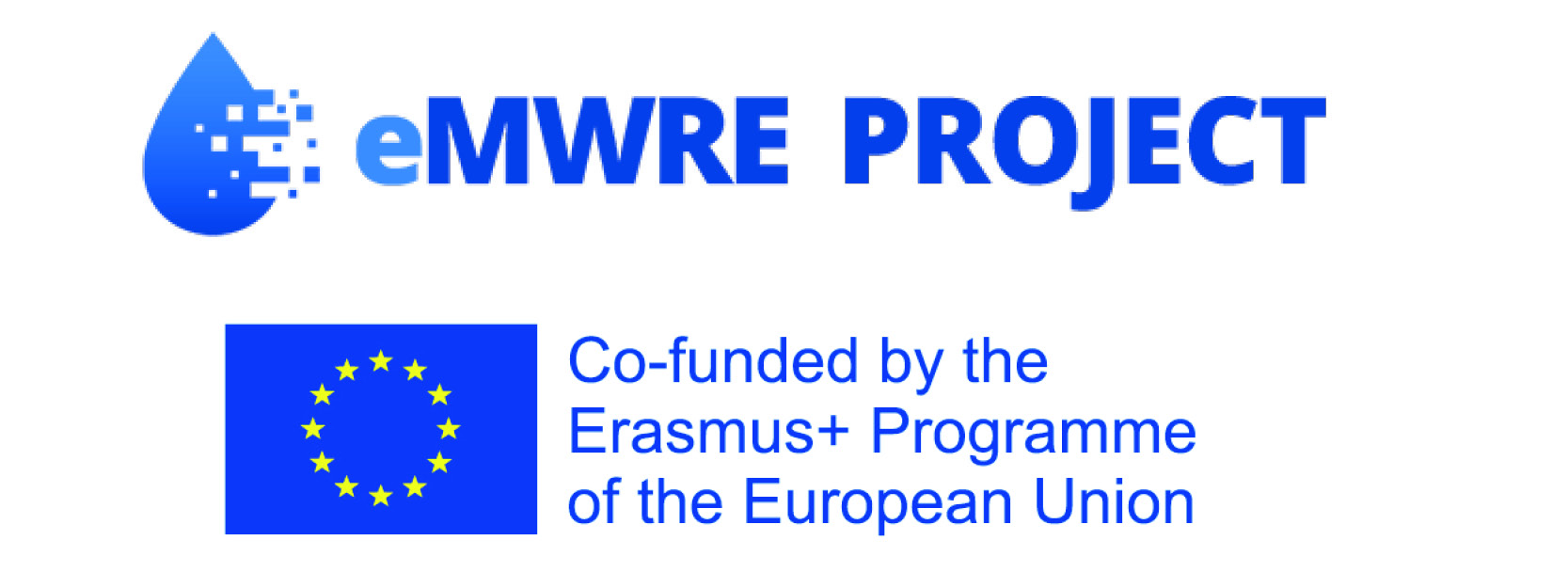
We’ve all had a difficult year due to the coronavirus pandemic, but – as often is the case – there can be a positive fall-out from such events. E-learning has been given such a - somewhat abrupt and radical – boost. Digital learning has accelerated across the world, with students and lecturers having to adjust overnight to new set-ups and getting to grips with sometimes unfamiliar technologies.
However, it has shown the value of online teaching and e-learning platforms. For one Erasmus+ capacity-building project in the field of higher education, the sudden change to online has been very welcome. The e-Masters in Water Resources Engineering (eMWRE) programme was for EU funding in 2019, and is coordinated by the Vrije Universiteit Brussel (VUB)’s Professor Ann van Griensven and dr Zainab Zomlot. The consortium includes IHE Delft Institute for Water Education (the Netherlands), Eummena (a company specialising in technology-enhanced learning), the Islamic University of Gaza (Palestine), Al-Quds University (Palestine), Mutah University (Jordan), and The University of Jordan. The consortium’s aim is to implement an innovative e-Master programme in water resources to modernise education by using innovative technologies and advanced tools to provide more sustainable solutions to the water scarcity issues in the MENA region.
The e-Master programme
The two-year e-Master is designed to be fully aligned with the Bologna process and the ECTS system, consisting of 120 ECTS allowing for solid scientific foundations in water resources so students can specialise further with their thesis research. Dr Zomlot stresses one very important element in its set-up: “All the training will be done via free and open source software. The whole project will use free and open source tools, because at the end of the day the aim is to share knowledge to tackle water problems, thereby also dealing with the political issues that emanate from them.” For dr Zomlot this programme has an additional advantage: its digital set-up will allow women in the MENA region to take the course, as often travel is limited for women in the area, so this opens the doors to them to receive an excellent education, and it makes the course inclusive. The project has the following goals:
- Develop an e-curriculum for the new Master programme in Water Resources Engineering
- Develop e-training modules on open source software for water resources applications
- Develop an e-learning platform as a repository for Open Education on water resources
- Set up new/upgrade existing GIS (Geographical Information Systems) laboratories at each partner university
- Strengthen existing and set up new academic and research networks in partner countries
- Promote joint research, open-access and innovative technologies
- Support students’ mobility across countries to developed standardised e-courses following the Bologna system
- Raise awareness of the gender aspects of water use and management, and support gender equality in access to education.
The whole project and the e-Master programme will be entirely in English, not just to enhance English language skills, but to ensure and facilitate international collaboration. The plan is to currently work with 4 partner institutions in Jordan and Palestine. But in a second phase the consortium would like to apply for more funding to roll out the project across more countries. This isn’t as straight forward as one might think. The situation in each country across the MENA region is different, so you can’t just take the work that is currently under way and “cut/paste” it somewhere else. The idea is to gather up as many case studies as possible and share them on the e-learning platform. [Continue reading below image]

Professor Samir Afifi, from the Islamic University of Gaza (Palestine), explains the project’s progress: “The start was intense. We really put all our efforts into updating the schedule to boost the start-up phase. At the moment, 20% of the work has been achieved, and 50% of it is ongoing. However, the covid19 situation has shown the importance of e-learning.” Professor Jawad Hassan from Al-Quds University (Palestine) adds, “The workload has been heavy on the partners in the consortium, and although we are now doing webinars and training sessions online, there is a clear value to meeting in person. Normally, now (early March 2021) we should be in Brussels to meet with everyone for training.”
In Palestine, the covid19 pandemic had a positive side for the project. The accreditation process of the e-Master was slow in getting approved. Then the pandemic hit, and the government bodies realised the importance of online learning. The accreditation of the programme is now well under way. Ann van Griensven adds, “but because of all the hard work from the partners we are actually ahead of schedule, and we should be on track to launch the e-Master’s programme for the new academic year, in October 2021. A lot of work still needs to be done, but we’re hopeful we can meet this deadline, and to be honest, as Samir mentioned, the pandemic gave us a boost there.”
Professor Hassan elaborates, “We are currently prepping the teaching materials, but we’re not reinventing the wheel of course. We are using existing materials but they do need to be adapted for this medium. Teaching an online course is not the same as in-person teaching, and this adaptation has to be done alongside the day-to-day work the professors and teachers are already doing.”
An e-learning course has its limits of course, and this has been clear with the preparations of the course where physical meetings have been replaced by webinars (nb: the consortium is on to its 2nd highly successful series of webinars, with the first one attracting over 2,000 registrations from 145 countries).
Water Scarcity and Climate Change
The project as a whole has been a wonderful demonstration of team work. The course will of course also benefit from on the ground experience. There will be case studies of real situations which researchers and students will work on, but representatives from authorities will be involved as well. For the authorities it’s an interesting programme, as the graduates will be working with real life situations on the ground and be in contact with NGOs, government bodies, companies, etc. There will also be courses that contribute to life-long learning programmes, which is an important element given the actual problem at hand: water scarcity and climate change are both issues that hit the MENA region quite hard, but they are also international problems. The work done within the project can very well be extrapolated to the West, or internationally.
Professor Afifi explains, “There are lots of discussions on adaptation and mitigation regarding water scarcity, but what is needed is real mitigation. The effects of climate change come from industrial countries. Real steps need to be taken to tackle climate change. With President Biden bringing the US back into the Paris Climate Accords, change will hopefully be real in the near future, and we will be able to tackle especially the water issues.”
Professor Hassan adds: ”Human existence and human extinction – there are two options open to us: we either continue consuming resources as we are, and it will lead to human extinction, or we revisit our reliance on resources and look at unconventional ones, which will lead to human existence. One example is the re-use of water by treating it, thereby protecting existing ground water. We have such a project under way, which we are going to use as a case study.”
As Professor van Griensven puts it within the context of World Water Day, “from a European point of view, we can really learn from what is happening in the MENA region today. We really need to share more information and we must better understand the drivers that impact climate change. Sharing knowledge to solve water problems will ultimately also solve (some) political problems. That is why our project emphasises the use of free and open source tools, as Zainab mentioned – they facilitate knowledge-sharing, and e-learning modules, platforms and courses are also easier to share.”
More information on the EMWRE project:
- Project website: https://emwre.eu/mod/page/view.php?id=65
- FB: https://www.facebook.com/EmwreErasmusPlus/
- Twitter: https://twitter.com/EmwreErasmus
- LinkedIn: https://www.linkedin.com/company/emwreerasmusplus/